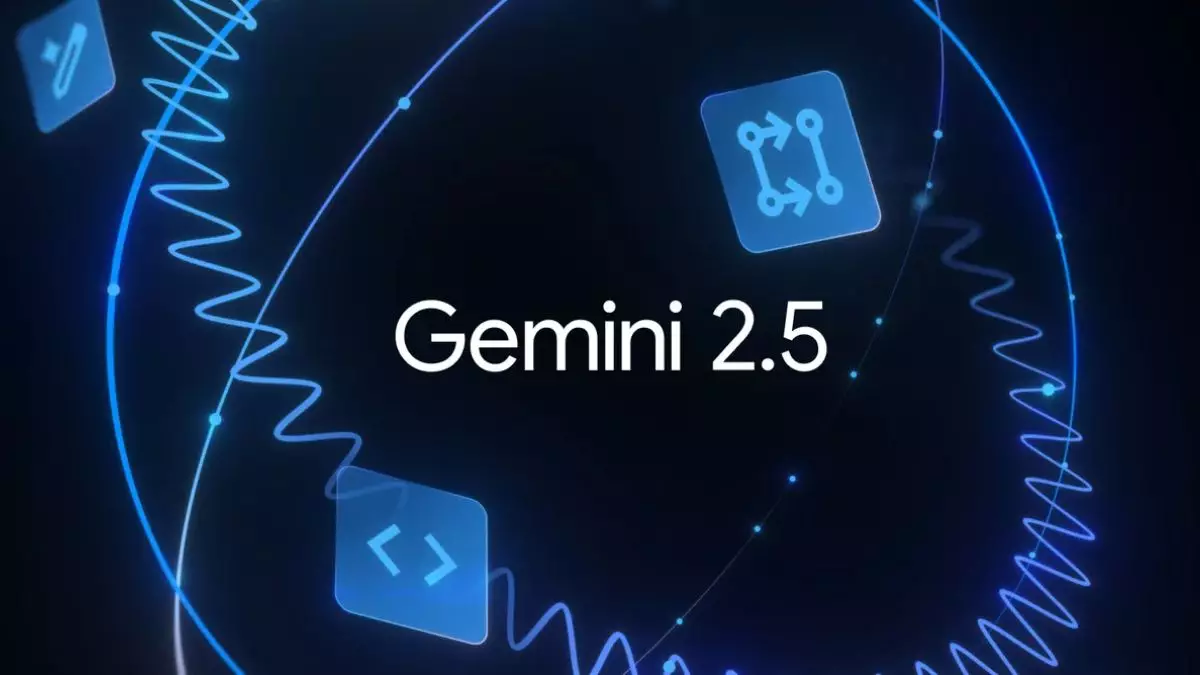Google’s Gemini 2.5 family of artificial intelligence models has officially entered the arena, and the hype surrounding its release is palpable. On a bustling Tuesday, the tech behemoth announced the public availability of the Gemini 2.5 Pro and Gemini 2.5 Flash models, bringing with it promises of innovation and advanced capabilities. However, amid this wave of excitement, one must scrutinize whether this release is a genuine technological advancement or simply a polished marketing maneuver aimed at capturing public attention.
While the Pro model is now accessible to both paid subscribers and free-tier users, the limitations imposed on the latter—despite having access to impressive AI tools—raise eyebrows. This duality in user experience encapsulates a broader fractal of societal inequality, where the best resources are typically reserved for those willing or able to pay. It inevitably casts a shadow over Google’s noble mission of democratizing access to advanced technology. Are we genuinely witnessing the birth of accessible AI, or are we flirting with a tiered system that exacerbates existing divides?
The Price of Progress: Who Gets to Play?
The rollout of the Gemini 2.5 models comes with significant caveats, particularly for free users who face stringent daily limits. Here, the disparity becomes starkly apparent: while Google AI Pro users can harness the absolute power of the Gemini engine with up to 100 prompts daily, their free counterparts may find themselves relegated to a mere taste of what the technology can truly accomplish. This disparity not only perpetuates existing economic inequities but risks alienating an entire section of users—including students, small entrepreneurs, and enthusiasts—who could benefit tremendously from unrestricted access to AI-powered tools.
The moral implications of this tiered access cannot be ignored. With Google presenting itself as a forward-thinking innovator, one has to wonder if it is responsible to weave user limitations into the very fabric of technological advancement. Shouldn’t the potential of AI be universally accessible, rather than a privilege reserved for those who can afford it? It blurs the line between corporate vision and commercial exploitation.
Technical Nuances: Stability vs. Innovation
Amidst discussions of access and limits, there’s the technical prowess of the Gemini 2.5 models to consider. While users eagerly anticipate a reduction in errors and glitches that plagued the preview versions, the improvements feel modest at best. Without radical advancements or significant updates, we must question the extent to which these models have genuinely evolved since earlier iterations. If the innovations merely inhabit a space of iterative refinement, where does that leave the potential for groundbreaking advancements?
Take the introduction of the Gemini 2.5 Flash-Lite model, which Google touts as faster and more efficient than its predecessor. On paper, its enhanced capabilities for real-time tasks and multimodal input support sound impressive, yet such attributes raise the question of whether these models are truly pioneering new frontiers. Or are they simply repackaged iterations, adorned with glittering new labels to mask a lack of substantial improvement?
Moreover, the seamless integration of these models into platforms like Google Search hints at an ambitious game plan, albeit one fraught with potential pitfalls. By infusing AI capabilities into everyday tools, Google undoubtedly aspires to revolutionize user experience. However, this approach begs the question: will users embrace this newfound convenience, or will they recoil at the thought of algorithms dictating their search results and, in turn, manipulating their perceptions of reality?
Ethical Considerations: The AI Dilemma
As we marvel at the capabilities of Gemini 2.5, we are inevitably thrust into a labyrinth of ethical dilemmas. The intersection of AI and user data privacy remains a pressing concern, particularly with features that access personal history for queries. What are the ramifications of an AI that not only interacts with us but also monitors our digital footprints? As we navigate this brave new world, it is crucial to demand robust accountability and transparency from tech giants like Google.
The disparity in access, the questionable innovations, and the ethical quagmire surrounding data usage all culminate in a pressing narrative: the launch of Gemini 2.5 provokes more questions than answers. It compels us to confront our own complicity in a system that prioritizes profit over people, and progress over principles. As society stands at the cusp of an AI-driven future, we must weigh not just the possibilities, but the costs, lest we stumble into a dystopia masked as innovation.

